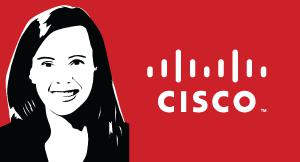Partner:
 Thank you to Avanade for underwriting CXOTALK.
Thank you to Avanade for underwriting CXOTALK.
 Connected things, intelligent automation and even robots — what we broadly define as smart technologies — have begun to dramatically transform the way we work and interact with organizations in a digital world.
Connected things, intelligent automation and even robots — what we broadly define as smart technologies — have begun to dramatically transform the way we work and interact with organizations in a digital world.
As more smart machines report to work, recent research (pdf) illustrates what’s on the minds of C-level and IT executives these days: 86 percent anticipate the pace of technology change will increase rapidly or at an unprecedented rate in their industry over the next three years. As a result, the vast majority believe that by 2020, their organization’s workforce will need to change as these technologies become more widely used.
With this seismic shift comes some weighty issues.
Executives know that connected devices, intelligent automation and even robots will transform how their organizations operate. But what about the moral, ethical and human dilemmas that increased AI interactions are creating for business?
Digital Ethics Defined
Research firm Gartner defines digital ethics as a system of values and moral principles for the conduct of digital interactions between businesses, people and things. It sits at the nexus of what is legally required, what can be made possible by digital technology and what is ethically desirable.
How is digital ethics different than business ethics in general? In reality, it isn’t. But the potential for missteps or mishandling of information generated in the digital age requires much more awareness, thought and process to protect those potentially impacted by it.
And while organizations have always encountered ethical issues, the digital world is bringing them with more frequency as many C-level executives and IT leaders having experienced a digital ethics issue at work more than once.
While the majority of executives acknowledge they will need to establish and adhere to digital ethics guidelines in order to be successful in the future, an overwhelming majority have told us their organizations haven’t given enough thought to the ethical issues that are coming. While this may be concerning, the good news is we’re seeing more interest in investing in digital ethics over the next five years.
Building Blocks of Digital Ethics: Clarity, Communications, Consistency
As a business student many years ago, the mantra of our ethics course was, “Do right by the customer.”
While that advice still holds true today, digital technologies have the potential to do much more harm. With this tsunami of data comes much more responsibility.
As companies begin to address the ethical issues triggered by the use of smart technologies in the workplace, they can focus on three key areas:
Be Clear
When it comes to the increased use of smart technologies, doing right by the customer starts with organizations setting the right tone with their employees. Organizations should be thoughtful about how much data should be gathered, how it is used and how it must be treated. Their own culture and set of values will show their employees what is acceptable and what is not.
Customer data protection policies are a great example of setting guidelines for how to use information generated about a customer. While these policies help build clear expectations for how employees should treat information they come into contact with, it’s really only the beginning.
With so much information at their fingertips, organizations must continuously strive to build awareness among employees about where digital ethical issues may arise. Conducting an “ethics audit” at the beginning of an initiative could be a valuable step.
In this audit, marketers, IT and CIOs must come together and ask the tough questions: What information are we gathering and for what purpose? Do we need all of this information to reach our desired business goal or can we achieve the same objective with less? How will this information be secured? What potential ethical pitfalls exist that we may not have anticipated by collecting and using this data? How will the use of this information delight our customers — and how could it potentially turn them off? How will we let customers know we’re collecting this data? Can they opt out?
Be Communicative
Consumers expect organizations will use their data to better support their experience. For example, banks use our spending patterns to predict the likelihood that a transaction may be fraudulent — and take proactive steps to alert us when a purchase doesn’t seem right. Web sites use online shopping behaviors to pitch similar products. And companies like Facebook, Pinterest and Google gather data every millisecond to make their advertising algorithms smarter and more tailored to individual preferences.
But how far is too far? One need only look to recent headlines to illustrate this point: the biggest digital ethics pitfalls come when businesses aren’t transparent about their use of data from the beginning.
Communication is critical. Organizations must be clear with their clients, customers and partners what type of information they are gathering and how it’s being used. Once they’ve communicated their intentions, they can take it one step further: give customers the ability to consent to using their data in the first place.
Be Consistent
American author and speaker Gretchen Rubin once wrote: “What I do every day matters more than what I do once in a while.”
This applies more today than ever before. Organizations get into trouble when they haven’t applied digital ethics standards and guidelines with the same rigor in every scenario. Establishing written policies and guidelines gives everyone involved a roadmap to follow, not just once in a while, but always.
Humans Keep the Smart Machines in Check
Regardless of how far smart technologies go in repurposing roles in the workplace, one fact remains: humans are and always will be at the center of business relationships. Humans, working side by side with intelligent automation, will deliver the best results.
Machines promise to make our jobs easier and give organizations the ability to personalize the customer experience in ways once thought impossible. But trust and loyalty will only be nurtured if we continue to navigate and address up front the new set of ethical challenges that come with this brave new digital world.
Presented By: Avanade
Sep 08, 2016




